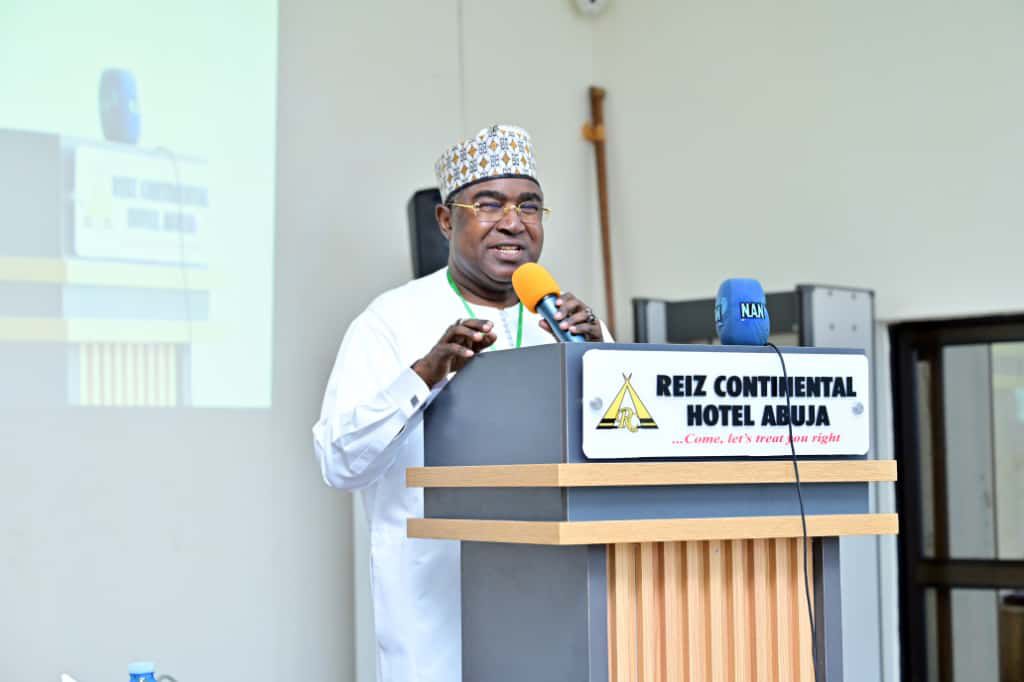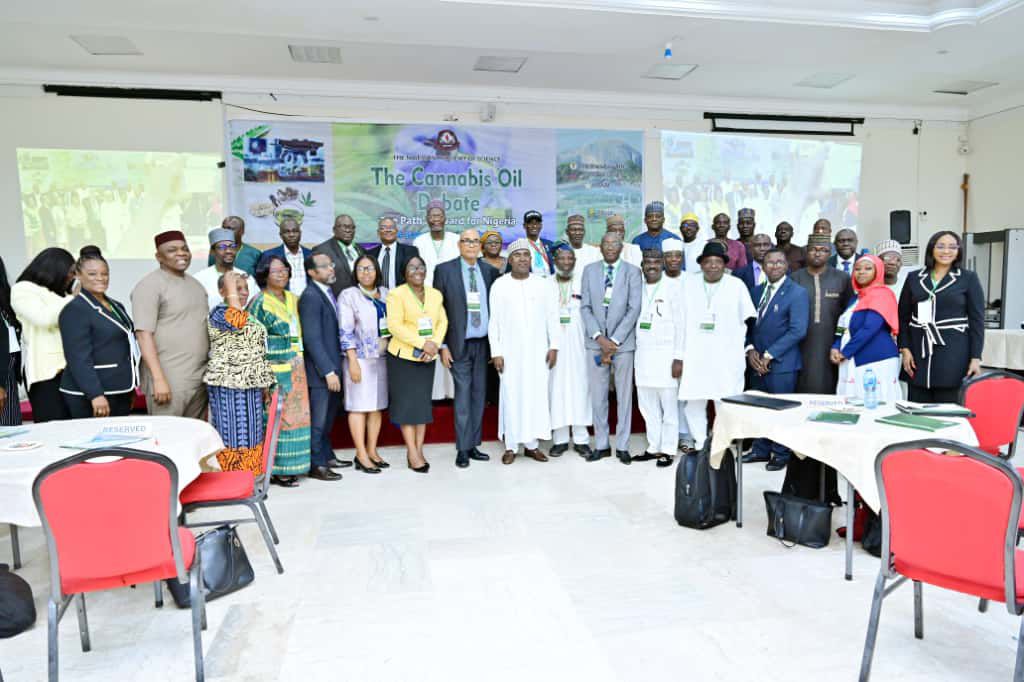NDLEA Supports Regulated Exportation of Cannabis Oil, Opposes Local Consumption — Marwa

…As scientists, stakeholders deliberate at Nigerian Academy of Science workshop
The Chairman and Chief Executive Officer of the National Drug Law Enforcement Agency (NDLEA), Brig. Gen. Mohamed Buba Marwa (Rtd), has said that the Agency supports the controlled export of cannabis oil to countries that have approved its medical use but remains firmly opposed to its domestic consumption in Nigeria.
Marwa made this known on Wednesday, 8th October 2025, in Abuja during a stakeholders’ workshop themed “Cannabis Oil Debate: The Path Forward for Nigeria”, organised by the Nigerian Academy of Science (NAS). He said the NDLEA’s position is grounded on evidence-based caution and the need to protect public health amid Nigeria’s already high rate of substance abuse.
“At NDLEA, our position on cannabis oil is simple: we welcome dialogue. We believe Nigeria must make informed choices, not choices driven by half-truths, commercial interests, or global trends,” Marwa said. “Cannabis oil may have medicinal properties worth investigating, but it also carries health risks, potential for misuse, and implications for public safety.”

He clarified that while the NDLEA is open to the idea of exporting cannabis oil under a strictly regulated framework, such operations must be licensed, monitored, and conducted exclusively within export free zones under NDLEA supervision.
“We are not opposed to science, nor indifferent to innovation,” Marwa stated. “However, policy must protect lives, safeguard public health, and strengthen — not weaken — our fight against drug abuse.”
The NDLEA boss noted that discussions about cannabis oil must be grounded in scientific evidence rather than commercial or emotional appeal. He said the Agency had commissioned an ongoing study by the NAS to provide a fact-based assessment of cannabis oil and its potential implications for Nigeria.
“We are talking about cannabis, which is not just another plant. It is a substance with complex medical, social, and economic dimensions,” he explained. “Advocates often highlight the supposed benefits of cannabis oil, while its risks and consequences are glossed over. That is why this dialogue is crucial.”
Marwa warned that the health risks associated with cannabis and its derivatives cannot be ignored, citing evidence that links prolonged use to anxiety, depression, psychosis, and cognitive impairment. He noted that with a substance abuse prevalence rate of 14.4 per cent — nearly triple the global average of 5.6 per cent — and 10.6 million cannabis users in Nigeria as of the 2018 drug use survey, the country cannot afford to overlook the dangers.
“Dependence and addiction are real concerns,” he said. “These side effects create additional social and economic costs for families, communities, and the nation.”
Marwa also raised concerns over the lack of standardisation in cannabis oil production globally, saying products often vary in potency and may contain harmful contaminants.
Highlighting efforts to combat illicit drug cultivation, Marwa revealed that the NDLEA became the first agency in Africa to introduce an Alternative Development Project in 2023.
He said the project aims to address the socio-economic vulnerabilities that push people into drug-related activities, particularly in rural areas.
“The project focuses on reducing poverty, ignorance, hunger, and unemployment — the very factors that drive people into illicit economies,” Marwa explained. “We are promoting ethical responsibility, skills acquisition, empowerment, and sustainable livelihoods to replace illicit drug cultivation.”
In his welcome address, the President of the Nigerian Academy of Science, Prof. Abubakar Sambo, represented by the Vice President, Prof. Friday Okonofua, said the workshop was convened to foster consensus on the contentious issue of cannabis oil use in Nigeria.
“At the end of the day, we will have an evidence-based consensus document that will guide national decision-making on the use of cannabis,” Okonofua said.
Chairman of the NAS Study Committee on Cannabis Oil Use, Prof. Musbau Akanbi, commended the NDLEA for its collaboration with the Academy, describing the Agency’s approach as proactive and science-driven.
“We reviewed global research on cannabis oil and decided to convene this workshop to collate expert opinions that will help NDLEA discharge its responsibility,” Akanbi said.
Representing Ondo State Governor Lucky Aiyedatiwa, Dr. Samuel Adekola urged stakeholders to work towards policies that balance public health interests with economic opportunities.
“This workshop gives Nigeria the opportunity to move from debate to design, from potential to policy,” Adekola said. “Let us proceed with vision, courage, and unity of purpose to craft a model that positions Nigeria as a leader in Africa’s emerging cannabis oil sector.”
Delivering the keynote address, Prof. Oye Gureje, Director of the WHO Collaborating Centre for Research and Training in Mental Health, Neurosciences and Substance Abuse, University of Ibadan, noted that while cannabis has “some limited medical use,” widespread recreational use poses significant risks.
“The increased use of cannabis is likely to heighten risks of psychosis and road accidents,” Gureje warned, urging policymakers to weigh potential benefits against public health implications.
The workshop brought together scientists, medical experts, policymakers, and regulatory agencies to deliberate on the scientific, economic, and ethical dimensions of cannabis oil use in Nigeria.







